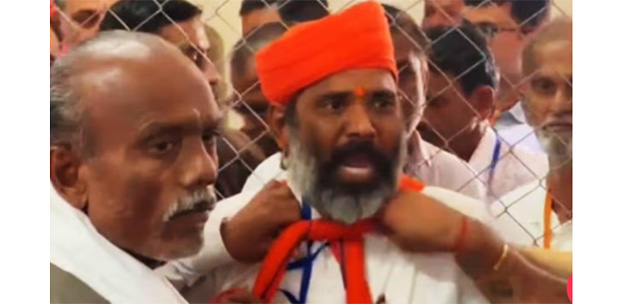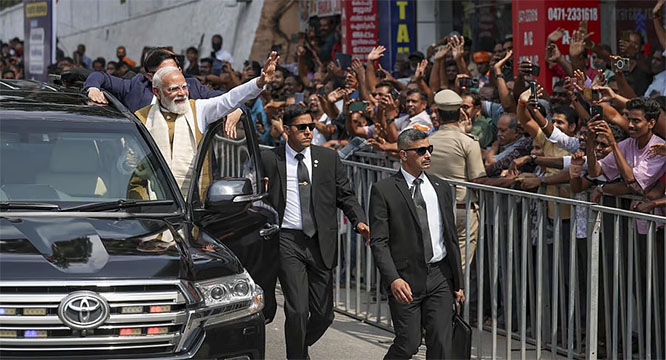
Ahmedabad, Dec 8: Alleging tampering with Electronic Voting Machines (EVMs), a Congress candidate from Gujarat's Gandhidham attempted suicide on Thursday.
Earlier today, Congress candidate Bharatbhai Veljibhai Solanki tried to kill himself as he began trailing claiming BJP's handiwork behind it.
Fortunately, many Congress supporters and others who stood there rushed and thwarted any grave consequences.
While the allegations of EVM tampering continue, the Bharatiya Janata Party (BJP) has done exceptionally well in the Gujarat Assembly Elections. When reports last came in, the saffron party had broken all records, plundering a robust 157, bettering its own earlier record.
Prime Minister Narendra Modi had conducted extensive campaigning in the poll-bound state, even holding an unprecedented 30-km roadshow, attracting a phenomenal 10 lakh supporters in attendance.
While BJP is revelling in its glory, the picture is rather sad with the Congress, which has managed a paltry 19 seats at the time of filing this report.
Diametrically opposite to Modi's buoyant campaigning, Congress's Rahul Gandhi did not participate enthusiastically. He was there in the state for a day as he took a break from Madhya Pradesh - where at that point in time - the Bharat Jodo was taking place.







Comments
Add new comment